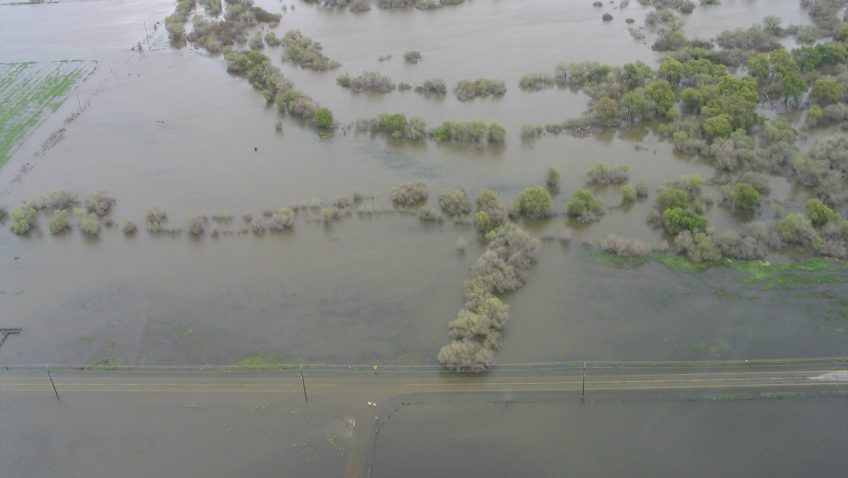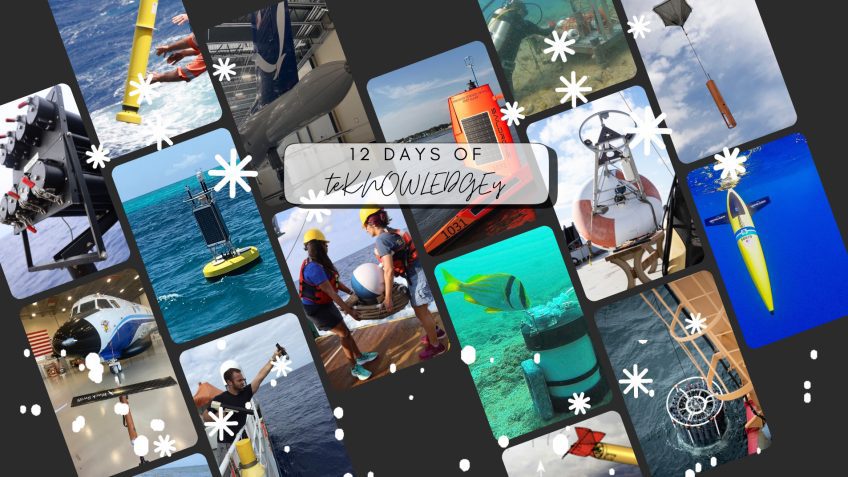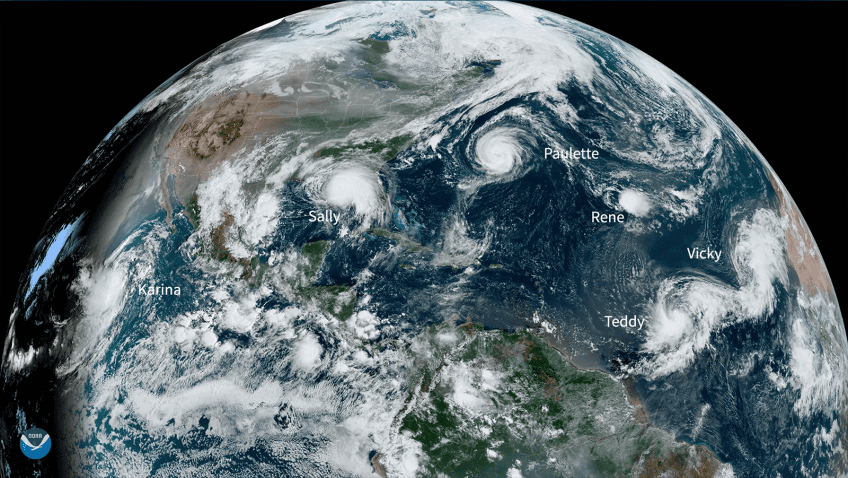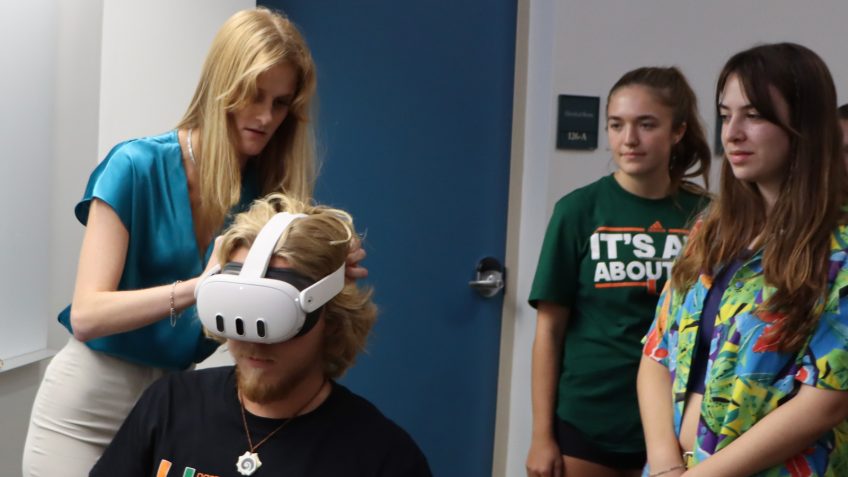New study reveals long-term cooling and freshening of the deep Subtropical North Atlantic Ocean, with hints of major shifts to come over next decade An official press release can be seen on the University of Miami Rosenstiel School’s newsroom website. A new study published in Nature Communications, Earth & Environment unveils a surprising new take […]
Read Full Article
Extreme hydroclimate events, such as droughts, floods, and heavy rainfall, account for a substantial portion of weather-related disasters in the United States, leading to significant socio-economic losses involving agriculture, water resources, and public health, among others. For instance, from 1980 to 2024, droughts were responsible for approximately $368 billion in economic losses for the United […]
Read Full Article
Behind every research project at NOAA’s Atlantic Oceanographic and Meteorological Laboratory (AOML) are a suite of instruments. Whether descending to depths or weathering storms, these technologies are paramount to oceanic and atmospheric observations. Get to know 12 of these instruments with a new social media series: 12 Days of teKNOWLEDGEy! On the 1st day of […]
Read Full Article
Originally published on noaa.gov on December 11, 2024. Somewhere in the middle of the ocean, a merchant mariner lowers a cylindrical robotic ocean observing instrument from a ship into the sea to record ocean temperature and salinity. Another instrument is deployed from a plane into the eye of a hurricane to take the pulse of […]
Read Full Article
Tropical cyclones are among the most deadly and costly natural disasters that affect the United States and many other countries each year. This has led the scientific community to prioritize improving tropical cyclone prediction and the understanding of how tropical cyclone activity has changed and will change in the future. In a new study published […]
Read Full Article
Whether flying through hurricanes, diving in urban ports to study coral spawning, or sampling deep ocean currents on oceanographic cruises, summer at NOAA’s Atlantic Oceanographic and Meteorological Laboratory (AOML) is filled with scientific activity. To highlight the broad and impactful research conducted at the lab and the passionate scientists driving that work, AOML launched its […]
Read Full Article
Over the past few months, the University of Miami’s Rosenstiel School of Marine, Atmospheric, and Earth Science has conducted three FLOTSUM, i.e., Florida Ocean Time Series by Undergrads at UM, cruises aboard its research vessel the F.G. Walton Smith. FLOTSUM day cruises are conducted five times per year in the Florida Straits for training purposes […]
Read Full Article
An official press release can be seen on the University of Miami Rosenstiel School’s newsroom website. A critical ocean layer for El Niño–Southern Oscillation (ENSO) dynamics. A study published October 31, 2024, in the Journal of Geophysical Research: Oceans has revealed significant acceleration in the upper-ocean circulation of the equatorial Pacific over the past 30 years. This […]
Read Full Article
Southwest Atlantic Meridional Overturning Circulation (SAM) The backbone of the South Atlantic MOC Basin-Wide Array along 34.5°S JUMP TO DATA OR SCROLL TO LEARN MORE Who We Are What We Do The South Atlantic Meridional Overturning Circulation (SAM) project, which began in 2009, involves an array of four pressure-equipped inverted echo sounders (PIES) along 34.5°S [...]
Read Full Article
VR technology represents a new frontier in science communication, and NOAA’s Atlantic Oceanographic and Meteorological Laboratory (AOML) is using it to invite everyone on a research mission alongside their scientists. This virtual reality research experience is a project for Masters student Devon Ledbetter, who works as a science communication intern at AOML. Devon’s project aims […]
Read Full Article











